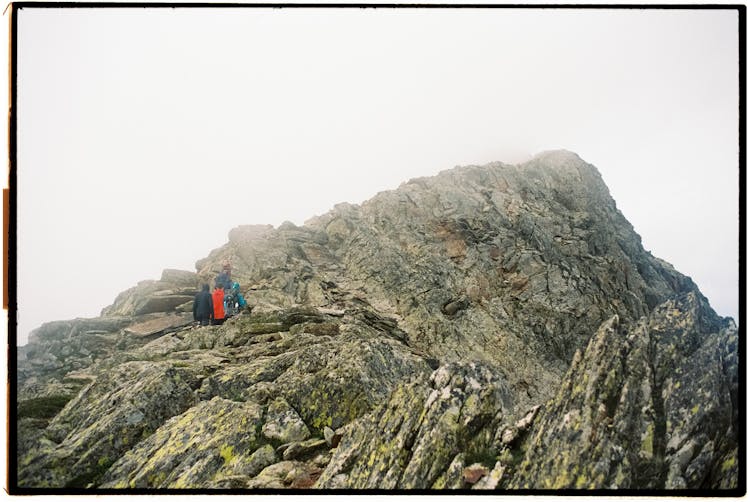All Categories
Featured
Table of Contents
Essential Mountain Trail Safety Tips
TLDR Summary- 🗻 Always know your limits and plan your hike accordingly.
- 💧 Stay hydrated by taking plenty of drinking water.
- 🧭 Familiarize yourself with the trail and carry a reliable map.
- 👟 Wear sturdy shoes to prevent injuries.
- 🚫 Never feed or touch wildlife.
Mountain trails offer breathtaking views and the exhilaration of nature, but they also come with their own set of risks. Being prepared can make all the difference in ensuring an enjoyable experience. Whether you are a seasoned hiker or just starting out, being aware of your limits is crucial. The first step to a successful hike is to assess your physical fitness level and select a trail suited to your skill level. Opt for trails that are less demanding if you're new to the activity, and consider increasing difficulty only as you gain experience.
Planning your hike is an irreplaceable aspect of trail safety. Investigate the landscape and any weather conditions that may affect your hike. Make sure to check for any alerts or closures at your chosen destination. Having a map is invaluable; you can find useful guides like the Great Smoky Mountains National Park Map, which can help you navigate through different terrains.
As part of your preparation, always pack essential items. Carrying an outdoor plan will ensure that you have everything you need. Common items should include a first-aid kit, a flashlight, snacks, and extra layers of clothing. Following this, drinking enough water is vital during your hike. Hydration ensures that your energy levels stay up, so take plenty of drinking water with you, especially on hot days. It's crucial to listen to your body; if you're feeling fatigued, it's okay to take breaks.
Hiking smart is integral to mountain safety. Always consult local tide tables if you are near a beach and anticipate any shifts in environmental conditions that could affect your trail. Keep a lookout for mosquitoes and ticks, especially during the warmer months. Don't forget to apply repellent to reduce bites and check your body after hiking. This can be key in preventing Lyme disease or other tick-related illnesses.
Additionally, having a plan that includes a trusted buddy system can ensure that help is available if needed. Hiking with a buddy not only enhances safety but also adds to the shared experience, making memories more meaningful. If you must hike alone, inform someone of your intended route and expected return. Knowing that someone is aware of your whereabouts can greatly enhance your safety.
As you hit the trails, observing trail etiquette is also important. Being courteous to fellow hikers helps maintain a friendly atmosphere. Yielding to those climbing uphill is one of the best practices, as they require more energy. Remember also to leave no trace: carry out what you carry in, including trash, to preserve the environment.
When it comes to attire, wear sturdy shoes that provide support and grip. A well-fitted pair of hiking boots can make a significant difference in comfort and safety during uneven terrains. Likewise, avoid wearing cotton; instead, opt for moisture-wicking fabrics to stay dry. If you're exploring wooded areas, being cautious around snakes is essential. Always stay alert to your surroundings and wear long pants and sleeves for protection.
While on the trail, be on the lookout for poison oak. Identifying and avoiding this plant can save you from discomfort later on. If you suspect exposure, wash affected areas as soon as possible. Furthermore, continue to check your body for ticks post-hike. The sooner you remove them, the less likelihood of health issues arising.
Exploring mountain trails can be a backdrop for life-changing experiences, but it is crucial to prepare adequately. Using a reliable navigation system is highly recommended. Sometimes, signs are less than clear, and alternative navigation methods can save the day if you happen to lose your way. Carry a compass as a backup, memorize key landmarks, and conserve your smartphone battery power by using it wisely. A simple trick is to turn on airplane mode when not in use.
As unpredictable as nature can be, you must be prepared for the unexpected. Keep a positive mindset, and avoid panic or rash decisions during unforeseen circumstances. Trust in your planning, stay level-headed, and don't rush. Seek assistance through other hikers if you need help, as the hiking community is generally supportive and willing to lend a hand. You can also explore guides like Best Easy Day Hikes Rocky Mountain National Park for further insights.
Heading out onto the trails is as rewarding as it is invigorating. Keep these safety tips in mind, and soon you'll be ready to embark on your next adventure safely and enjoyably. Your experience in the mountains can be incredibly enriching, given the right preparation and attitude.
What items should I always carry while hiking?
Why is it important to hike with a buddy?
Returning to the outdoors is deeply rewarding, and the mountains are the perfect backdrop for a rejuvenating experience. Preparing adequately will ensure you make the most out of your adventures while remaining safe. With an informed attitude and respect for nature, your hiking outings can turn into cherished memories. Besides, hiking in dreamy locations such as the White Mountains can be those stories you will tell for years to come. For more detailed trail information, consider guides like AMC's Best Day Hikes in the White Mountains. Safe hiking!

Latest Posts
Say Goodbye to Manual Outreach: Menterprise's Automated Link Building
Understanding Credit Reports: A Deep Dive
Persistent Weeds: Strategies for Repeated Treatments